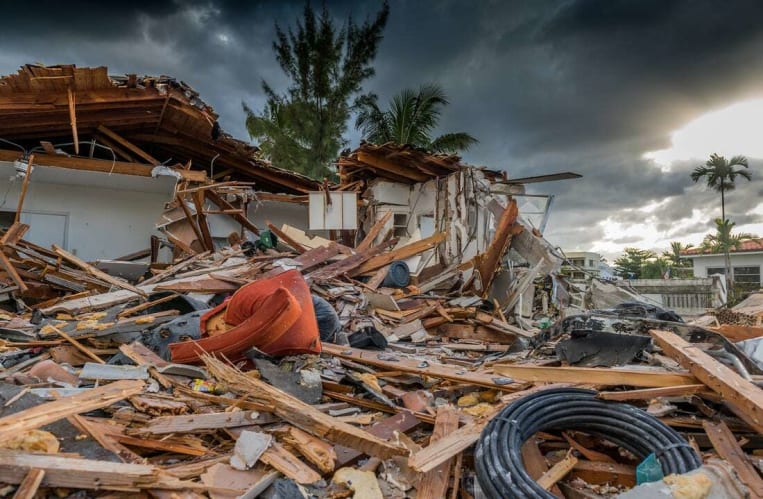
BBB Tips: After the disaster, 10 tips to help you make an insurance claim

(Getty Images)
If your insurance policy has been lost or destroyed, or if you are confused about the policy benefits or exclusions, contact your insurance company to find out what coverages you have and request a copy of the policy.
What you'll learn:
-
How to handle insurance claims effectively after a disaster, including when to contact your insurer, what documentation to collect, and the importance of written approvals and receipts.
-
How to protect yourself from contractor scams, such as spotting red flags, avoiding signing blank contracts, and verifying credentials through trusted sources like BBB.org.
-
What additional support may be available, including temporary living expense reimbursements, federal aid through FEMA, and local volunteer assistance for temporary repairs.
Updated May 27, 2025 with new tips
The Better Business Bureau offers the following ten tips when dealing with insurance after a disaster strikes:
- Contact your insurance company immediately. Not only does this get the ball rolling on the claims process, but you might be eligible for loss-of-use benefits, which means you could be reimbursed for hotel costs, food, and other living expenses while your house is unlivable. Be sure to document all conversations with your insurance company or their adjuster and get any promises for reimbursements in writing. Be sure to retain all receipts.
- Beware of contractors who claim to be insurance claim specialists. Be sure you have thoroughly checked out your contractor before you permit them to deal directly with your insurance company and seek approval of repairs for you. Unscrupulous businesses have tricked consumers into signing a work estimate without reading the fine print, which commits you to automatically contract with their business if your insurance claim is approved.
- Document the damage to your property and possessions thoroughly. If possible, take pictures or videos. If it is safe to do so, go from room to room and create a detailed account of your belongings; in fact, it's advisable to do this even before disaster strikes so you have a record of what you own. People may not be allowed near their property until the area has been secured by emergency responders and local authorities. Keep all your receipts for supplies and living expenses for future reimbursement.
- Make any temporary repairs to limit further damage to your home or business. You may be liable for damage that occurs after a disaster has passed, so make temporary repairs, such as boarding up broken windows or throwing a tarp over a leaky roof. Beware of contractors who may try to offer these services for exorbitant fees. Be sure to get quotes in writing in advance or seek out volunteer groups in your area that may be offering assistance for free.
- Do not make any permanent repairs until you get approval from your insurance company. Make sure you understand how your insurance company will reimburse your repair costs. Your insurer might not fully reimburse you for repairs made without their authorization.
- Get repair estimates in writing. Collect several estimates and ensure they are detailed and in writing. Never sign a blank contract or pay in cash. Clarify whether the contractor will work with your insurance company or if you’ll be responsible for the entire payment upfront.
- Do not hand over an insurance check to a contractor for repairs prior to work being started. Never give more than one-third of the job price upfront, and make sure that your insurance company has approved all repairs before you give your final payment to the contractor.
- Be patient and persistent. Natural disasters can lead to a surge in claims, so it may take longer to process yours. Follow up regularly and keep notes of all interactions.
- You may qualify for additional assistance when insurance doesn't cover all of your losses. In the U.S., check with the Federal Emergency Management Agency at fema.gov for more information.
- Use trusted resources. Visit BBB.org for trustworthy business profiles and consumer resources.
For more information
Stay up to date on BBB's natural disaster resources and news.
See BBB's insurance company HQ for more tips.
Still Need Assistance?
Contact Your Local BBB
Your local Better Business Bureau can assist you with finding businesses you can trust. Start With Trust®.
Additional Resources
Let BBB help you resolve problems with a business
Research and report on scams and fraud using BBB Scam Tracker
Learn more about the value of BBB Accreditation